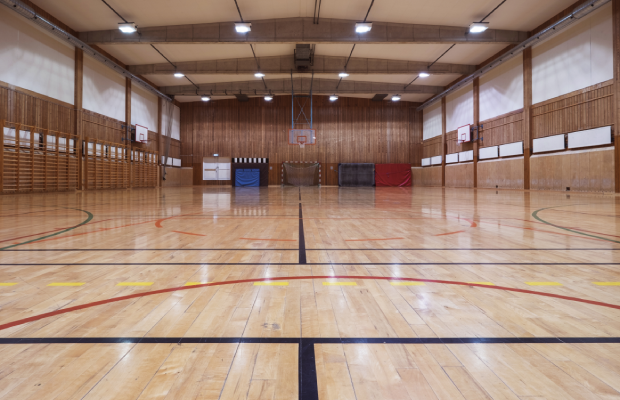Strengths and Weaknesses of Cue-Dependant Forgetting Theory
Scroll to see replies
Trace decay is basically the decay of the 'route' to reach encoding over time. Occurs mainly in the STM
Its self explainitory
Its self explainitory

I know lmao, I'm a hopeless case. Luckily we're not looking at memory yet, I need to do a lot more reading up!
Really, the essays follow that standard plan. Just make sure you go in knowing the theory inside out, and with a very critical head on.
edit: Lovely avatar. I'm still so shocked.
I'm still so shocked.
Really, the essays follow that standard plan. Just make sure you go in knowing the theory inside out, and with a very critical head on.
edit: Lovely avatar.
 I'm still so shocked.
I'm still so shocked.Ok, I'll write that down somwhere are remember it. You are an actual life saver
I really do hate A levels; memory test and jumping through hoops. Thats it.
I really do hate A levels; memory test and jumping through hoops. Thats it.
Another Theory = Trace Decay Theory (Hebb, 1945?), Interference Theory (Can't remember who) or Displacement Theory (Again, can't remember who; think it was Peterson and Peterson)
Strengths:
- Wealth of supporting evidence.
- Explains everyday phenomenon e.g. tip of the tongue (Brown, 1999) which therefore means the theory is relevant to our understanding of everyday life and therefore is useful as a phenomenological theory (study of everyday life).
- iortant practical applications e.g. line ups, being taken back to scene of crime and photo identification all useful for identifying perpetrators of crimes.
Weaknesses
- Only really explains forgetting in long term memory.
- Not a complete explanation e.g. some memories don't need cues (e.g. flashbulb memories), happy memories better remembered than sad ones etc.
If you need any more help in Psychology feel free to PM me.
Strengths:
- Wealth of supporting evidence.
- Explains everyday phenomenon e.g. tip of the tongue (Brown, 1999) which therefore means the theory is relevant to our understanding of everyday life and therefore is useful as a phenomenological theory (study of everyday life).
- iortant practical applications e.g. line ups, being taken back to scene of crime and photo identification all useful for identifying perpetrators of crimes.
Weaknesses
- Only really explains forgetting in long term memory.
- Not a complete explanation e.g. some memories don't need cues (e.g. flashbulb memories), happy memories better remembered than sad ones etc.
If you need any more help in Psychology feel free to PM me.
skotch
Another Theory = Trace Decay Theory (Hebb, 1945?), Interference Theory (Can't remember who) or Displacement Theory (Again, can't remember who; think it was Peterson and Peterson)
Strengths:
- Wealth of supporting evidence.
- Explains everyday phenomenon e.g. tip of the tongue (Brown, 1999) which therefore means the theory is relevant to our understanding of everyday life and therefore is useful as a phenomenological theory (study of everyday life).
- iortant practical applications e.g. line ups, being taken back to scene of crime and photo identification all useful for identifying perpetrators of crimes.
Weaknesses
- Only really explains forgetting in long term memory.
- Not a complete explanation e.g. some memories don't need cues (e.g. flashbulb memories), happy memories better remembered than sad ones etc.
If you need any more help in Psychology feel free to PM me.
Strengths:
- Wealth of supporting evidence.
- Explains everyday phenomenon e.g. tip of the tongue (Brown, 1999) which therefore means the theory is relevant to our understanding of everyday life and therefore is useful as a phenomenological theory (study of everyday life).
- iortant practical applications e.g. line ups, being taken back to scene of crime and photo identification all useful for identifying perpetrators of crimes.
Weaknesses
- Only really explains forgetting in long term memory.
- Not a complete explanation e.g. some memories don't need cues (e.g. flashbulb memories), happy memories better remembered than sad ones etc.
If you need any more help in Psychology feel free to PM me.
Ah, someone with the theories still fresh in the mind. The main theory I think is the one supported by the divers' study, the one OP is looking at primarily.
I knew it was Peterson and Peterson, something to do with 5-7-9? How much one can store in memory?
aliluvschoc
Lovely avatar.  I'm still so shocked.
I'm still so shocked.
 I'm still so shocked.
I'm still so shocked.Same
 , I was suprised I could find a nice pic with allowed pixel size for avatars
, I was suprised I could find a nice pic with allowed pixel size for avatars Also, thank you skotch

skotch
.
- iortant practical applications e.g. line ups, being taken back to scene of crime and photo identification all useful for identifying perpetrators of crimes.
- iortant practical applications e.g. line ups, being taken back to scene of crime and photo identification all useful for identifying perpetrators of crimes.
Perfect, can link to EWT (the key issue)
aliluvschoc
Ah, someone with the theories still fresh in the mind. The main theory I think is the one supported by the divers' study, the one OP is looking at primarily.
I knew it was Peterson and Peterson, something to do with 5-7-9? How much one can store in memory?
I knew it was Peterson and Peterson, something to do with 5-7-9? How much one can store in memory?
The strengths and weaknesses that I wrote were for Cue Dependency Theory. (Godden and Baddeley is the divers study which is the main study of Cue Dependency and I believe G and B also came up with the theory)
5-7-9 isn't that Murdoch's Magic Number (7 +/- 2)?
Ah just remembered... I think this is right. I may be totally mixed up.
Peterson and Peterson did the experiment where they tested people's recall before and after they had been to sleep in one condition and the same amount of time after w/o being asleep. It was found that those that had gone to sleep had better recall (sleep reduced the impact of interference - therefore they remembered more).
aliluvschoc
And that's the Loftus stuff isn't it?
skotch
yup! I guess you're doing Edexcel, then?

AQA looked like a bitch. Toby was on AQA too and he struggled with it. It wasn't the content, it was the exams.
I know a weakness which is that the theory lacks ecological validity. Most studies investigating this theory are conducted in controlled laboratories, in real life we are not going to be given cues whenever we need them to remember something. Also in real life situations may feel more urgent than an experiment which may also affect the results as when we feel stressed we may not pick up on some cues.
Quick Reply
Related discussions
- Psychology Help
- A-Level Psychology AQA
- Edexcel A-level Psychology Paper 1 (9PS0 01) - 19th May 2023 [Exam Chat]
- A Level Options to get into UOB?
- AS level psychology aqa 8 marker - how do i structure them?
- Tips for psychology evaluation
- Learn Direct Access to HE - unit 2 help!
- Marking my AQA A-Level Psychology Essay: Effects of Institutionalisation
- A level psychology 16 markers
- key words in psychology essay questions
- sociology paper structure help
- Business BTEC Level 3 Extended Diploma
- Paramedical science interviews
- Edexcel GCSE Psychology Papers 1 & 2 - 19th & 26th May 2023 [Exam Chat]
- how to make money as someone with mental health issues/ extreme social anxiety
- BTEC Business Q&A
- how to write critically for essays?
- Using your knowledge of chemistry
- Marking AQA a-level Psychology Essay: Evaluate and outline the social learning theory
- Choosing a degree
Latest
Last reply 1 minute ago
Official Dental Hygiene and Therapy (Oral Health Science) 2024 Entry ThreadDentistry
2853
Last reply 1 minute ago
Official London School of Economics and Political Science 2024 Applicant ThreadLast reply 6 minutes ago
UAL Bsc Fashion Management and fashion marketingLast reply 9 minutes ago
Can I do medicine with these gcse grades and what unis would be most likely to acceptLast reply 10 minutes ago
Official: Aston University A100 2024 Entry Applicant threadMedical Schools
1127
Last reply 12 minutes ago
Official University of Bristol Applicant Thread for 2024Last reply 16 minutes ago
Can someone please mark my AIC essay (my teacher is such an unreliable marker)Posted 18 minutes ago
Can someone please mark this out of 30(all my teachers refused)Last reply 35 minutes ago
Girl cries after first day of work "How do you have time for your life?"Chat
8
Last reply 35 minutes ago
My friend might be getting extra time and i hate it.Last reply 38 minutes ago
LSE anthropology and law 2024Last reply 43 minutes ago
Official University College London Applicant Thread for 2024Trending
Last reply 1 week ago
AQA A Level Psychology Paper 3 (7182/3) - 3rd June 2024 [Exam Chat]Last reply 1 week ago
AQA A Level Psychology Paper 1 (7182/1) - 17th May 2024 [Exam Chat]Last reply 1 week ago
AQA A Level Psychology Paper 2 (7182/2) - 22nd May 2024 [Exam Chat]Last reply 2 weeks ago
Edexcel GCSE Psychology Papers 1 & 2 - 19th & 26th May 2023 [Exam Chat]Last reply 1 month ago
AQA A-level Psychology Paper 2 (7182/2) - 25th May 2023 [Exam Chat]Last reply 1 month ago
Edexcel A-level Psychology Paper 1 (9PS0 01) - 19th May 2023 [Exam Chat]Last reply 1 month ago
What is your Method to remembering AO3 Evaluation Points in Psychology?Posted 1 month ago
Marking AQA a-level Psychology Essay: Evaluate and outline the social learning theoryLast reply 2 months ago
AQA A-level Psychology Paper 3 (7182/3) - 5th June 2023 [Exam Chat]Trending
Last reply 1 week ago
AQA A Level Psychology Paper 3 (7182/3) - 3rd June 2024 [Exam Chat]Last reply 1 week ago
AQA A Level Psychology Paper 1 (7182/1) - 17th May 2024 [Exam Chat]Last reply 1 week ago
AQA A Level Psychology Paper 2 (7182/2) - 22nd May 2024 [Exam Chat]Last reply 2 weeks ago
Edexcel GCSE Psychology Papers 1 & 2 - 19th & 26th May 2023 [Exam Chat]Last reply 1 month ago
AQA A-level Psychology Paper 2 (7182/2) - 25th May 2023 [Exam Chat]Last reply 1 month ago
Edexcel A-level Psychology Paper 1 (9PS0 01) - 19th May 2023 [Exam Chat]Last reply 1 month ago
What is your Method to remembering AO3 Evaluation Points in Psychology?Posted 1 month ago
Marking AQA a-level Psychology Essay: Evaluate and outline the social learning theoryLast reply 2 months ago
AQA A-level Psychology Paper 3 (7182/3) - 5th June 2023 [Exam Chat]
 sorted, good luck.
sorted, good luck.


